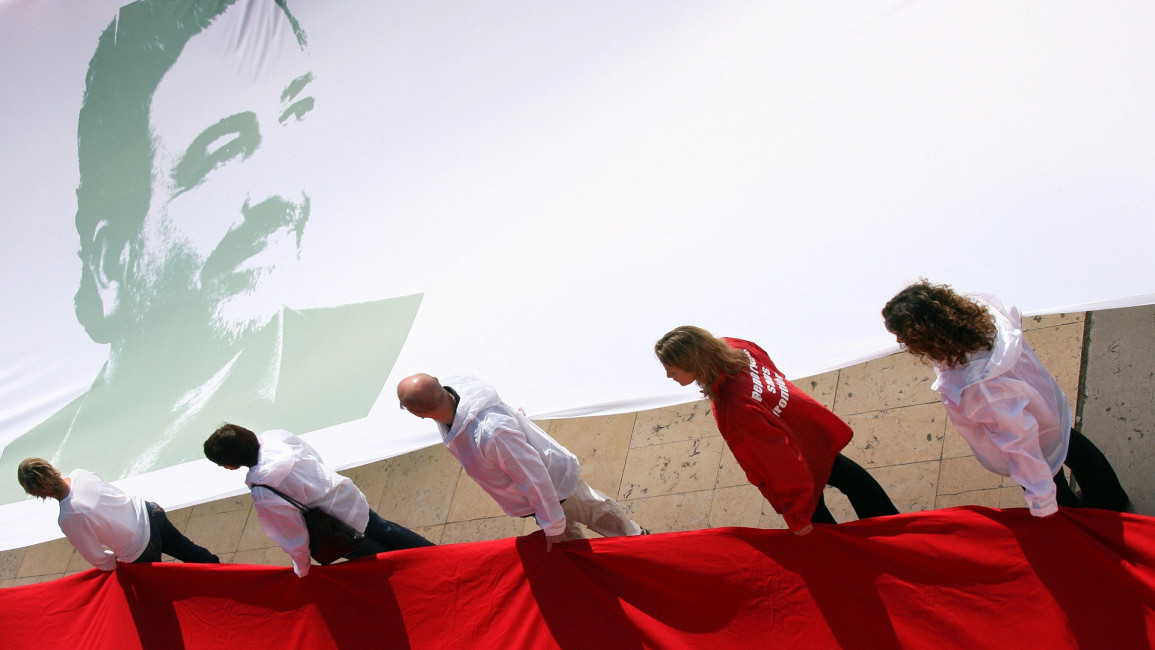
Rue des reporters: Paris streets 'renamed' after slain journalists
Marking the International Day to End Impunity for Crimes against Journalists earlier this month, Reporters Without Borders have symbolically renamed 12 Paris city streets after journalists who have been murdered, tortured or disappeared.
The press freedom activists pasted each journalist's name over the roadsigns of the streets which house their respective country's embassy in the French capital.
The street on which Lebanon's embassy sits was, for example, re-dedicated to Samir Kassir, a journalist and historian who was assassinated on June 2, 2005.
Reporters Without Borders, also known by its French name Reporters Sans Frontieres, is a France-based members' organisation committed to being a global defender of press freedom. It is using these 12 cases to highlight the fact that violent crimes against journalists usually go unpunished - because official investigations are inadequate or non-existent, and because governments are apathetic to the fate of those who would hold them accountable.
The renamed streets are those with embassies of countries where journalists have been the victims of unpunished crimes.
|
|
||
Their addresses have been changed to draw attention to the failure of these countries to take action - and to remind them of their obligation to do whatever is needed to bring those responsible for these crimes to justice.
The organisation called on the public to support the #FightImpunity campaign and visit the fightimpunity.org website.
The site provides details about unpunished crimes against such journalists as Lebanon's Samir Kassir, France's Guy-Andre Kieffer and Mexico's Maria Esther Aguilar Cansimbe.
It also allows visitors to take action by sending a personal email or tweet directly to the head of state or government concerned.
Five new names were added to the list in 2015. They include Tunisian journalists Sofiane Chourabi and Nadhir Ktari, who went missing in Libya in September 2014, and Radio France Internationale journalists Ghislaine Dupont and Claude Verlon, who were murdered in Kidal, in northern Mali, on November 2, 2013.
Six weeks after their deaths, the UN General Assembly created the International Day to End Impunity for Crimes against Journalists, and decided that it should be commemorated on the anniversary of their killings.
|
||
"The cases of impunity that we are presenting are terrible symbols of passivity or deliberate inaction on the part of certain governments," said Reporters Without Borders Secretary-General Christophe Deloire.
"This International Day is an occasion for paying homage to the victims, and for reminding governments of their obligation to protect journalists and to combat impunity. Those who target journalists will one day be held to account for their actions."
In the past ten years, nearly 800 journalists have been killed in connection with their work. A total of 48 have been killed since the start of 2015.
In order to combat the culture of impunity around the murder of media workers, Reporters Without Borders also called for the appointment of a special representative to the UN secretary-general on the safety of journalists, who are supposed to receive special protections under international law.
The Worldwide Day to End Impunity for Crimes against Journalists was also marked last week at the UN headquarters in New York.
UNESCO pointed to human rights violations, corruption and crime as the main cause behind the impunity granted to the killing of journalists.
According to the International Press Institute, "in the rare cases where a successful investigation and trial do take place, it is usually only the triggerman or hired man who faces conviction".


![President Pezeshkian has denounced Israel's attacks on Lebanon [Getty]](/sites/default/files/styles/image_684x385/public/2173482924.jpeg?h=a5f2f23a&itok=q3evVtko)



 Follow the Middle East's top stories in English at The New Arab on Google News
Follow the Middle East's top stories in English at The New Arab on Google News


